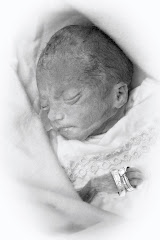Let’s first take a look at one section of verse 17, “our light and momentary troubles…” At first glance this description of our earthly struggles could appear offensive, even flippant. This would definitely not be a verse to write in a sympathy card or to quote to someone in the darkest time of their grief. Let’s face it, some passages are just better when you arrive at them on your own, and have only to think about what GOD meant by including it in His word, not human interpretation. I would say this is one of them, and I’ve been puzzling over it recently.
Light and momentary…Seriously? Well, let’s see, this is Paul writing about his physical struggles of mistreatment and imprisonment, so it must not be meant to apply to the loss of a child, right? It must not be meant to apply to me…
But the more I think and pray about these verses, the more I see that they are definitely intended to apply to me. So, how can God’s word actually call my pain and struggles light and momentary? Don’t you see what I’ve been through, Lord, don’t you know how empty it feels, how much it hurts? You are the only one who fully knows what I feel inside, and do you call it light and momentary?
To answer these questions, I need only look at the context of the rest of scripture. This year I’ve been in a Bible study group doing an in depth study of the book of John. One of our recent studies was chapter 11.
Here, Jesus’ friend Lazarus has died. Lazarus and his sisters Mary and Martha are among His most intimate earthly relationships, along with his disciples and his mother Mary, so he joins their side. Verses 33-35 say “When Jesus saw her (Mary) weeping, and the Jews who came with her also weeping, He was deeply moved in spirit and was troubled, and said, ‘Where have you laid him?’ They said to Him, ‘Lord, come and see.’ Jesus wept….” And verse 38 “So Jesus, again being very moved within, came to the tomb.” After this Jesus proceeds to heal Lazarus and calls him forth from the tomb, alive, and Mary and Martha and all those around are filled with unspeakable joy.
When considering Jesus’ emotional response, I believe it goes far beyond a human reaction to seeing that his friend has died. For one, Jesus knew that He had power over death, and that he would soon raise Lazarus to life again. It did sadden him that Lazarus had died, but this description of how deeply He felt goes beyond that. He also felt sympathy towards Mary and Martha, and profoundly compassionate in response to their sorrow. Yet, there is still more to His reaction, since He does know that their mourning will turn very quickly into rejoicing.
Here, I think Jesus is grieved for a variety of reasons. Deeply moved in spirit, in the literal Greek, means not only that He was sad, but also angered. Romans 6:23 says “The wages of sin is death…,” and here He is angry at Satan, our adversary and the father of sin and death, and deeply moved by the depth of suffering death brings to the lives of those He loves. He is feeling the weight of the pain, sorrow, and suffering of mankind as a result of death not only in this case, but all through the ages. He can see through the corridors of time, and knows that in the case of Lazarus he will rescue immediately, but in most cases, this pain will be felt until heaven.
In a sense, Jesus wept that day, for me, as if He could see the six-year-old feeling forsaken after the loss of her Daddy, the 14-year-old girl whose friend was killed in a car crash, at 16 when another friend was murdered, and now the Mommy weeping over the loss of her only daughter.
He wept not only for me, but for you, and for countless other members of the human race who Jesus loved and identified with deeply. He does not consider our suffering light and momentary from a human standpoint. In fact, He fully recognizes and has personally felt its magnitude. Not only that, but not so long after raising Lazarus, Jesus would personally bear the full penalty of death on His own shoulders on the cross, to make a way for those who believe in Him to escape spiritual death and be united together with Him and with each other for eternity.
Isaiah 53: 3-4 says of Christ:
“ He was despised and rejected by men,
a man of sorrows, and familiar with suffering.
Like one from whom men hide their faces
he was despised, and we esteemed him not.
Surely he took up our infirmities
and carried our sorrows…
Hebrew 4:14-16 reads:
“Therefore, since we have a great high priest who has gone through the heavens, Jesus the Son of God, let us hold firmly to the faith we profess. For we do not have a high priest who is unable to sympathize with our weaknesses, but we have one who has been tempted in every way, just as we are—yet was without sin. Let us then approach the throne of grace with confidence, so that we may receive mercy and find grace to help us in our time of need.”
So, if Jesus fully understands the depth of suffering we experience on this earth, why does His word speak of it in terms that would almost appear to dismiss it. How does Paul, whose suffering was immense, call all his trials light and momentary?
Because they are light and momentary by comparison.
Comparison to what? I know many of us have felt such sorrow over the loss of our children, we wonder how anything could ever make it look light by comparison. The answer is nothing can, on this earth.
But let’s look at the rest of this passage “For our light and momentary troubles are achieving for us an eternal glory that far outweighs them all. So we fix our eyes not on what is seen, but on what is unseen. For what is seen is temporary, but what is unseen is eternal.”
Our current trials are being compared with the promise of our eternal glory. Heaven. Also in Romans 8:18 Paul writes “I consider that our present sufferings are not worth comparing with the glory that will be revealed in us.” That is how immeasurably great the promise of heaven is.
Think of the deepest sadness you have ever felt, the most difficult day on your grief journey. Maybe the day you found out you would lose your baby, or the day you held your child for the last time. Or maybe it was days or even weeks later, when reality really began to sink in. Imagine the heaviness on your soul, an incomparable weight.
Now consider for just a moment, that on the flip side, the glory, joy, and freedom of heaven carries a weight that is far greater than that. In fact, that the heaviness of our sadness does not even compare in magnitude to the weight of glory! It’s more than I can understand or imagine. The only way to explain it is, “what is seen is temporary, but what is unseen is eternal.”
Although it remains unseen temporarily, if I close my eyes long enough, I can almost see the open arms of Jesus as I run into them on that day. I can almost hear Eliana laughing as she runs to me and I hold her for the first time alive. And when I picture that, I can understand these verses. Nothing could possibly compare to the magnitude of that day, not even our most profound feelings of suffering can begin to scratch the surface. All of that will melt away in an instant, in the blink of an eye, and it will suddenly be so light and momentary in light of eternity.
Revelation 21:4 says that God Himself will wipe away every tear from our eyes, and there will be no more death or mourning or crying or pain. For the very last time, there will be tears, and as they are wiped away by our Father, a permanent healing takes place. Our souls are made whole for the first time, and perhaps in that moment, those who have felt the greatest degree of pain and loss will experience the deepest degree of boundless joy. Only then, in the midst of utter perfection and completion, will our suffering be converted into light and momentary trouble. How I long for that day.












No comments:
Post a Comment